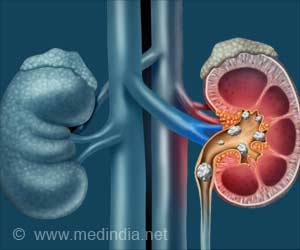Rise of drug-resistant infections is alarming. Antibiotic drug-resistance in urinary tract infections makes it difficult to identify the patients at risk.

‘A society with antibiotic drug-resistance would be like returning to pre-industrial times, where even a small infection could be life threatening.’





"The rise of drug-resistant infections is worrisome," said Bradley W. Frazee, MD, attending physician, Alameda Health System Highland Hospital and lead study author. "What's new is that in many of these resistant urinary tract infections, it may simply be impossible to identify which patients are at risk.Addressing the causes of antibiotic resistance, and developing novel drugs, is imperative. A society without working antibiotics would be like returning to preindustrial times, when a small injury or infection could easily become life-threatening."
The authors urge some immediate changes to clinical practice such as wider use of urine culture tests and a more reliable follow-up system for patients who turn out to have a resistant bug; improving emergency physician awareness of their hospital's antibiogram (a chart showing whether certain antibiotics work against certain bacteria); adherence to treatment guidelines and knowing which antibiotics to avoid in certain circumstances.
The Centers for Disease Control and Prevention (CDC) estimates that currently 23,000 Americans die each year from antibiotic-resistant infections.
The bacteria analyzed in this study were mostly E coli, that were resistant to cephalosporin antibiotics. Historically, such resistant bacteria were found in hospital-based infections.
Advertisement
More than two in five (44%) of the infections analyzed were community-based (contracted outside of the hospital), the highest proportion reported in the United States to date.
Advertisement
Source-Eurekalert















